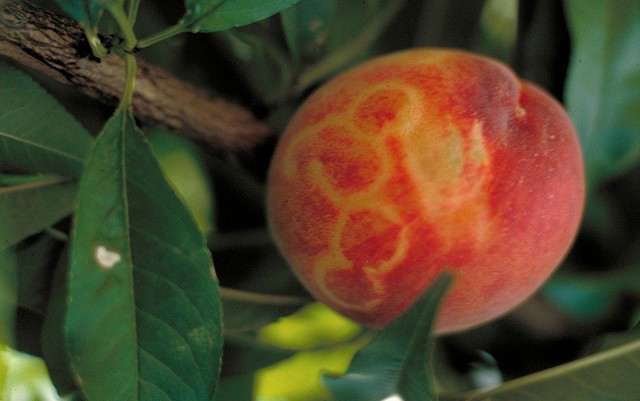Differentiation of Sharka Disease from other diseases
Chilean producers trained to recognize symptoms of the most well-known virus disease.
"The importance of a healthy plant, free of Sharka, starts from the nursery." This was one of the clear messages that Paulina Sepúlveda, a former INIA researcher, gave to stone fruit growers in Putaendo about one of the most destructive viruses affecting stone fruits: sharka, the only virus that requires quarantine and mandatory screening.
"When an orchard is infested with sharka, eradication is absolutely necessary, because these infected plants are a permanent reservoir of the disease from which the virus spreads to neighboring plants and orchards."
In this training, the phytopathologist described measures for prevention, disease management and how the disease is distinguished from other viral or bacterial diseases. He also stressed the importance of monitoring for the detection, prevention and timely control of diseases as fundamental actions that must be done in a peach orchard.
"The INIA project is precisely aimed at developing mitigation strategies for sharka disease (caused by the plum pox virus, race D) in order to strengthen the entire stone fruit production chain in Chile."
The expert explained that the difficulty of diseases caused by viruses is that they can not be controlled, unlike those caused by fungi or bacteria, which can be treated. Therefore, prevention is the only solution, monitoring the orchards to detect or not the disease and, based on this, to make decisions.
Growers have learned how to distinguish sharka from other diseases, caused by fungi and bacteria, which affect peaches, such as mildew, monilia, blossom blight, coryneum, silvering, bacterial cancer.
Sharka disease is characterized by the appearance of chlorotic rings and deformities in certain species and varieties. Symptoms occur only on the skin, with the exception of apricots, where the chlorotic ring reaches the pit.
Chlorotic rings can be observed on the leaves and the deformations on the wrist cause it to lose its quality. In fact, such fruits can not be exported.
One of the main measures to be taken to prevent sharka disease is to check that the plants are healthy when purchased, as sharka disease is transmitted in two ways: through the movement of infected propagating material and through aphids.
Source: FreshPlaza.com




